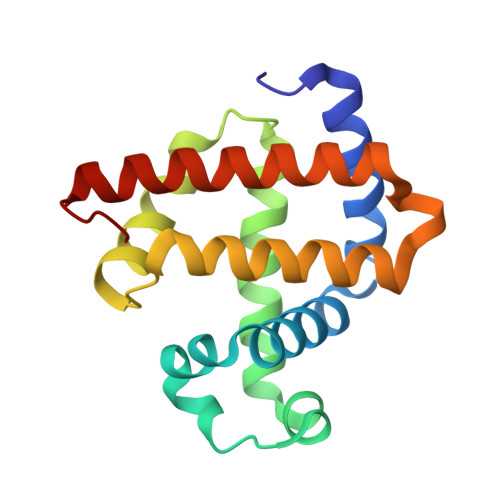Myoglobin-Catalyzed Azide Reduction Proceeds via an Anionic Metal Amide Intermediate.
Tinzl, M., Diedrich, J.V., Mittl, P.R.E., Clemancey, M., Reiher, M., Proppe, J., Latour, J.M., Hilvert, D.(2024) J Am Chem Soc 146: 1957-1966
- PubMed: 38264790
- DOI: https://doi.org/10.1021/jacs.3c09279
- Primary Citation of Related Structures:
8QBA, 8QBC - PubMed Abstract:
Nitrene transfer reactions catalyzed by heme proteins have broad potential for the stereoselective formation of carbon-nitrogen bonds. However, competition between productive nitrene transfer and the undesirable reduction of nitrene precursors limits the broad implementation of such biocatalytic methods. Here, we investigated the reduction of azides by the model heme protein myoglobin to gain mechanistic insights into the factors that control the fate of key reaction intermediates. In this system, the reaction proceeds via a proposed nitrene intermediate that is rapidly reduced and protonated to give a reactive ferrous amide species, which we characterized by UV/vis and Mössbauer spectroscopies, quantum mechanical calculations, and X-ray crystallography. Rate-limiting protonation of the ferrous amide to produce the corresponding amine is the final step in the catalytic cycle. These findings contribute to our understanding of the heme protein-catalyzed reduction of azides and provide a guide for future enzyme engineering campaigns to create more efficient nitrene transferases. Moreover, harnessing the reduction reaction in a chemoenzymatic cascade provided a potentially practical route to substituted pyrroles.
- Laboratory of Organic Chemistry, ETH Zürich, 8093 Zürich, Switzerland.
Organizational Affiliation:



















